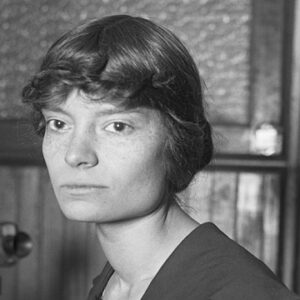Dorothy Day, the founder of ‘The Catholic Worker,’ was a social activist who advocated for issues such as women’s suffrage and peace. She began her career as a writer, writing for a number of progressive journals before taking part in a number of political protests in which she pushed for a variety of social concerns. She founded the ‘Catholic Worker Movement’ and assisted in the establishment of houses for those in need as a devout Catholic. Her convictions and adopted faith drove her to devote the majority of her life to humanitarian activities. She was a well-known ‘peace and justice’ activist in a number of countries, including Cuba, Italy, and the Soviet Union. She was known for her radical synthesis of activism and faith, as well as her work for women’s empowerment. Despite being denied the Nobel Prize, she remained a fervent supporter of the nonviolent movement and was therefore publicly recognized as a “Servant of God.” For many years, she has chronicled her difficult upbringing and seclusion in one of her best-selling novels, ‘The Long Loneliness.’ She acquired a strong interest in literature as a child, worked as a journalist for a small newspaper, and eventually became one of the driving forces behind a historic movement. Continue reading to find out more about her life and accomplishments.
Childhood and Adolescence
Dorothy Day was born in Brooklyn, New York, to John Day and Grace Satterlee. She grew up in San Francisco and Chicago, and spent the majority of her youth alone.
She was a voracious reader as a child, with a special interest in anarchist communism. She enrolled on a scholarship at the University of Illinois in Urbana-Champaign, but dropped out after a few years and relocated to New York City.
Her parents were nominal Christians, but she had a strong trust in the Bible since she was a child.
She avoided social gatherings in college and insisted on supporting herself rather than relying on her family. She took part in a number of protests as an adult and even worked for socialist periodicals such as ‘The Liberator.’
Career of Dorothy Day
Dorothy Day experienced a spiritual awakening in the late 1920s, which led to her conversion to Catholicism. She was christened at ‘Our Lady Help of Christians Parish’ on Staten Island in December 1927.
She departed New York in 1929 and worked as a screenwriter in Hollywood for a short time. She began writing for Catholic magazines such as ‘America’ and ‘Commonweal’ as the ‘Great Depression’ began to set in.
With the inaugural issue of the ‘Catholic Worker,’ published on May 1, 1933, she established ‘The Catholic Worker Movement.’ It was written to promote Catholic social teachings and pacifist ideology, and it was an instant hit with the general public.
She became a Benedictine oblate in the 1940s and was introduced to spiritual disciplines that she continued to pursue for the remainder of her life.
In her 1952 autobiography, ‘The Long Loneliness,’ she chronicled her relationships with lovers, children, marriage, and religion.
By the 1960s, many Catholics had accepted her doctrine, and she had won the admiration of a number of counterculture figures. She was a vocal opponent of the 1960s sexual revolution and sought to advance society and the economy.
She continually expressed her views on a variety of issues, including nuclear weapons, the Vietnam War, and the United Farm Workers’ unionization of migrant workers, even as she neared the end of her life.
During the 1970s, she worked to build homes for the needy and advocated for social justice for the poor.
Despite her bad condition, she traveled the world to share the message of ‘God,’ and she met Mother Teresa in India.
She made her final public appearance on August 6, 1976, at the Eucharistic Congress in Philadelphia.
Major Projects of Dorothy Day
‘The Catholic Worker,’ a publication published seven times a year by the ‘Catholic Worker Movement,’ a Catholic guild, was founded by Dorothy Day. It originally debuted on May 1, 1933, and by 1936, over 1,50,000 editions had been printed.
Her ‘Catholic Worker Movement’ extended to a number of nations, including Canada and the United Kingdom, and by 1941, there were 30 autonomous Catholic Worker movements.
Achievements & Awards
Dorothy Day was honored with the ‘Pacem in Terris Award’ in 1971 for her contributions to international peace and justice.
In 1972, the University of Notre Dame honored her with the Laetare Medal for her extraordinary commitment to the Roman Catholic church and society.
Personal History and Legacy
She had an affair with a newspaperman named Lionel Moise. She eventually married Berkeley Tobey, although the relationship was short-lived.
She wrote a semi-autobiography, ‘The Eleventh Virgin,’ which she later regretted writing.
She spent some time with the biologist Forster Batterham and became pregnant with his child. Forster Batterham was opposed to having children, which caused friction between them. She did, however, have a daughter, Tamar Teresa.
She died in New York City on December 29, 1980, after suffering a heart attack.
‘Dorothy Day: Don’t Call Me a Saint,’ the first full-length documentary about her life, premiered on November 29, 2005.
In 2008, her diaries were published as ‘The Duty of Delight: The Diaries of Dorothy Day.’
The ‘Catholic Worker Movement’ now has members in over 100 countries, including Australia, Germany, Mexico, and Sweden.
Dorothy Day Net Worth
Dorothy is one of the wealthiest civil rights leaders and one of the most well-known. Dorothy Day’s net worth is estimated to be $1.5 million, according to Wikipedia, Forbes, and Business Insider.
Trivia
This notable campaigner lived a bohemian lifestyle in her early years, but eventually modified her ways.
After catching malaria in Mexico City, this social activist returned to the United States.
Her gravestone has a motif of loaves and fishes as well as the words ‘Deo Gratias.’


